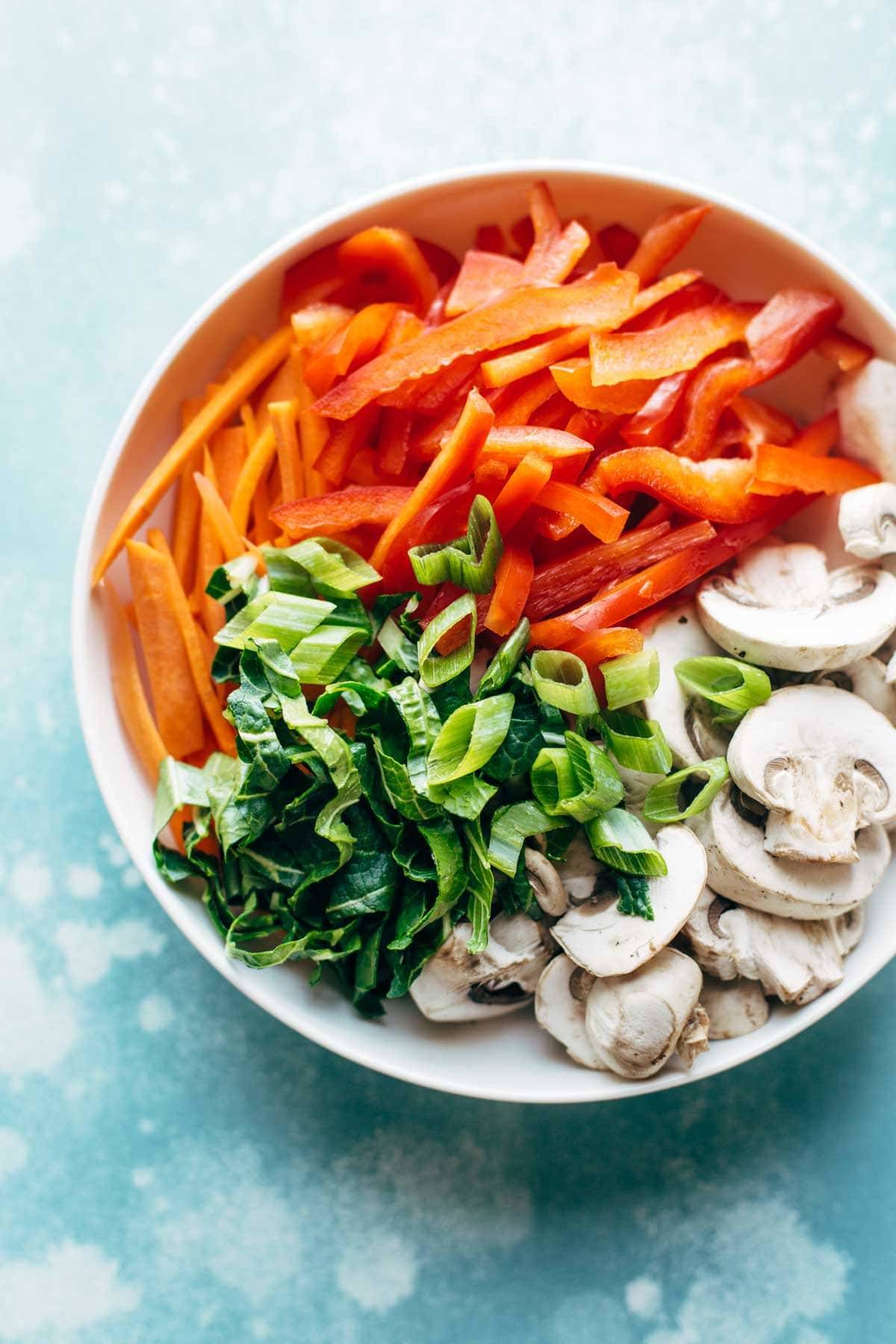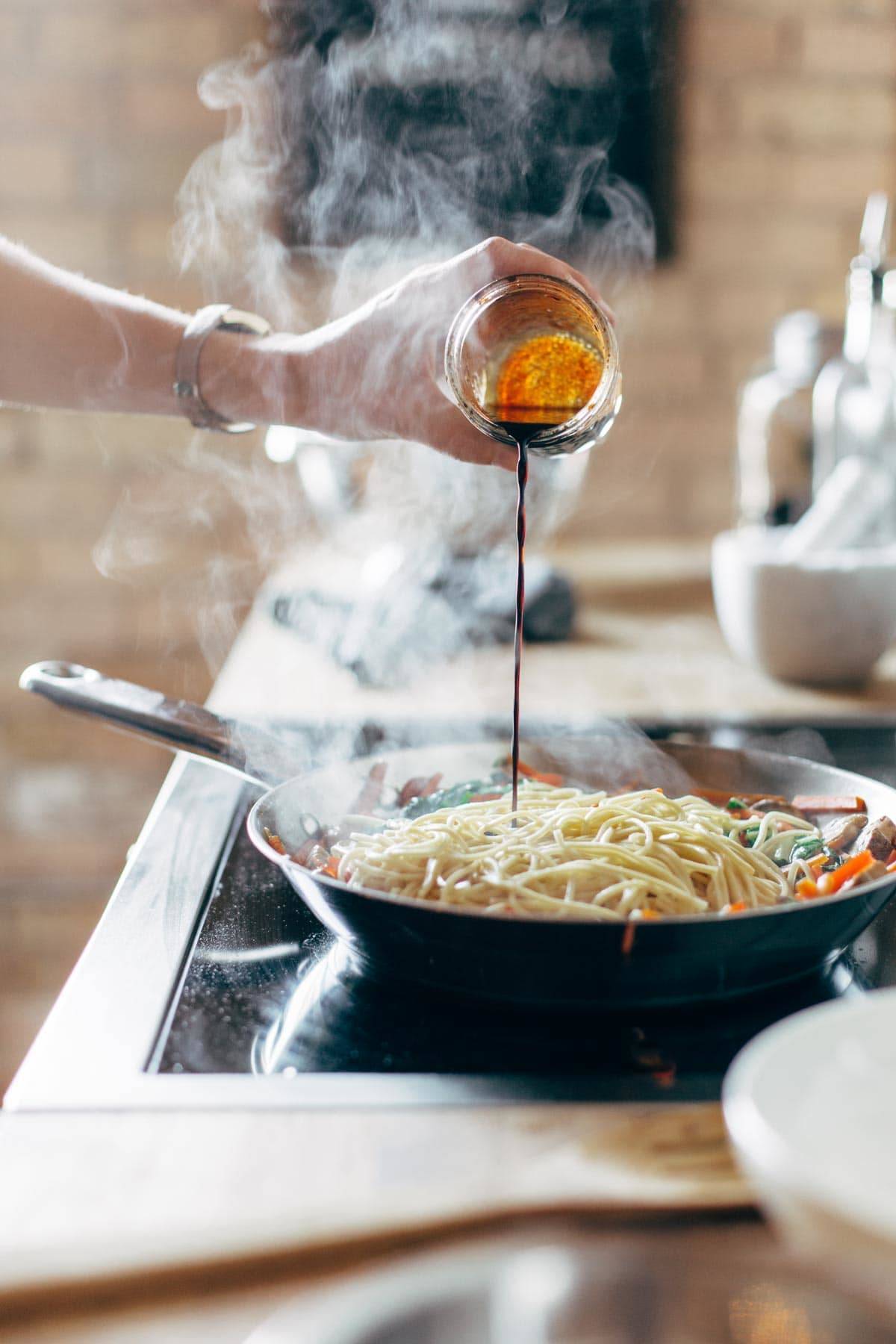Lo Mein: Frequently Asked Questions
These ones here (affiliate link) are perfect!
Because they contain wheat, traditional lo mein noodles are not gluten-free. To make this gluten-free, feel free to substitute your favorite GF spaghetti noodles or rice noodles!
It adds more depth and flavor to the dish – especially the dark soy sauce (affiliate link). Highly recommend using both if you can find them. If not, regular soy sauce (affiliate link) can always work.
Mirin is a type of rice wine. It adds a sweeter taste that creates a really nice contrast to the soy sauce’s saltiness.

What Goes In This Easy Lo Mein Sauce
You need good soy sauce, and the two types of soy sauce trick is highly recommended. It’s more of a little thing that makes a big difference than a trick. You most likely have light or low-sodium soy sauce in your refrigerator, but let me tell you something—dark soy sauce has an incredible umami flavor that elevates this Lo Mein “sauce” situation to a whole new level.
I did not use soy sauce packets from leftover takeout because soy sauce quality matters in this case (it’s one of literally THREE ingredients that will make the sauce for your stir-fried noodles).
Add a small amount of sugar and a tiny dash of sesame oil to a jar and shake well. annnnd DONE.

What goes in Lo Mein Noodles
Here’s what goes into the noodles (see below for sauce):
• Lo Mein noodles: Use freshly made yellow noodles, often called “egg noodles,” that are about 3 mm or 1/8 inch thick for takeout. “Fresh” refers to the ones found in the refrigerator section of grocery stores (for Aussies, head to the pasta section at Coles, Woolies, etc.). These noodles have that satisfyingly chewy, slick texture of takeout.
The next best option is vacuum-packed “fresh” egg noodles or dried egg noodles.
However, you can actually make lo mein with any kind of noodles—thick, thin, fresh, dried, egg, or rice—as well as ramen noodles and long pasta like spaghetti. This is going to be delicious with ANY kind of noodles (or pasta—trust me, no one will know!) Lo Mein doesn’t judge!
• For protein, use tofu, prawns/shrimp, turkey, pork, or beef. The recipe includes instructions on how to chop and cook each of these (PS: the hard tofu tastes amazing in this!).
• Vegetables: I used carrots, green onions, and bell or chili peppers. Use five cups total of packed vegetables, any kind will do. plus half of an onion and garlic; these comprise the flavor foundation!
The key to making a perfect lo mein is having a great sauce, and this is what you need to make lo mein that is truly worthy of takeout! I use these ingredients in almost all of my stir fries and noodles because they are the pinnacle of Chinese cooking!
- Dark soy sauce is available in most large grocery stores these days and is labeled as such on the bottle. It gives the food color and flavor—see how my noodles have turned a lovely bronze color? Thanks, Mr. Dark Soy!
- Soy Sauce: The second bottle will be labeled as light soy sauce or any generic soy sauce. Unlike dark soy sauce, which stains the noodles, this soy sauce gives the food some flavor and salt.
- Shaoxing wine, a Chinese cooking wine, is a necessary component for creating Asian noodles that are truly “restaurant standard.” Substitute with Mirin, cooking sake or dry sherry. Replace the cooking wine and water with low-sodium chicken broth or stock to make a non-alcoholic alternative. Cut the light soy sauce to one tablespoon. 5 tbsp.